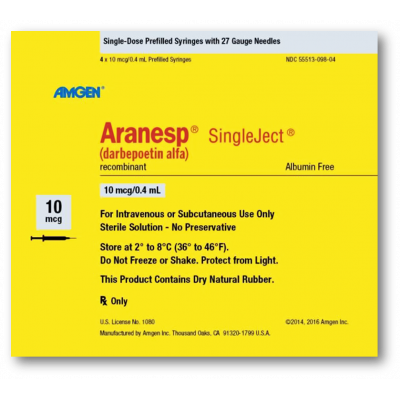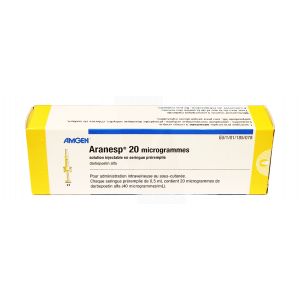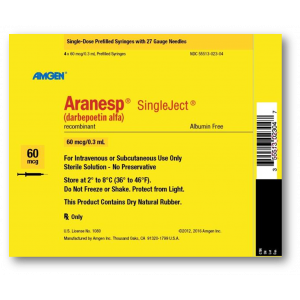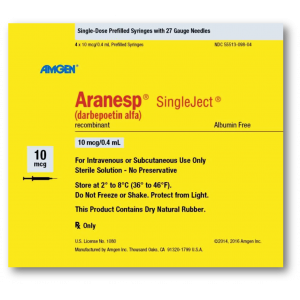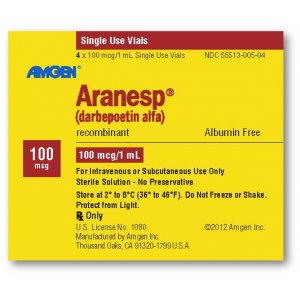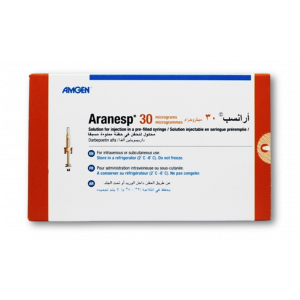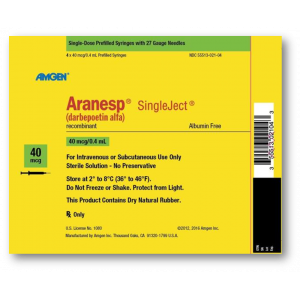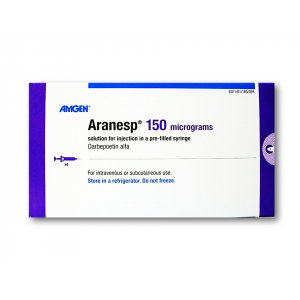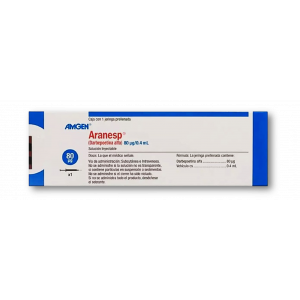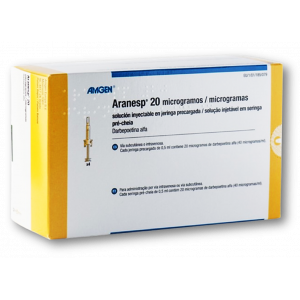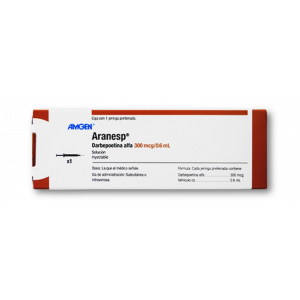- Anti-hestaminic & Respiratory Drugs (20)
- Anti-inflammatory Drugs (192) +-
- Baby & Mom (1326) +-
- Baby & Mom > Bath, skin & Hair > Skin Care > wibes (52)
- Beauty (3052) +-
- Beauty > Skin Care > whitening (307)
- Chemotherapy & Immune Response (883) +-
- Chemotherapy & Immune Response > ANTI-FUNGAL (11)
- Chemotherapy & Immune Response > Chemotherapeutic Agents > Hormone Antagonists >Enzyme Inhibitors (289)
- CIRCULATORY DISTURBANCE AGENTS (24)
- Diet & Fitness Products (284) +-
- DRUG AFFECTING CENTRAL NERVOUS SYSTEM (192)
- HEMATOLOGY (39)
-
Medical Supplies (503)
+-
- Chemicals & Disinfectants (19)
- Dental Supplies (31)
- Devices & Instruments (10)
- Diabetic Supplies (121)
- General Medical Supplies (21)
- I.V & Medical Solution (0)
- Intensive Care Unit & Anesthesia Supplies (0)
- KIDNEY UNIT SUPPLIES (21)
- Lab Supplies (3)
- Miscellaneous (21)
- Neonatal Unit Supplies (0)
- Operation Room Supplies (2)
- Sanitary (5)
- Sterilization Supplies (0)
- Surgical Sutures (4)
- Syringes (3)
-
Medicines & Health (2692)
+-
- Allergy & Sinus (95)
- Children's Health Care (54)
- Cough, Cold & Flu (277)
- Digestive Health & Nausea (230)
- Ear, Nose & Throat Care (179)
- Eye Care (124)
- Feminine Care (325)
- Foot Care (9)
- Orthopaedic Appliances (1)
- Pain Relief & Management (241)
- Pill Organizer (2)
- Skin Treatments (843)
- Sleep & Snoring Aids (2)
- Support & Braces (8)
- Medicines & health > Gout releif (42)
- Natural & Organic Products (81) +-
- OTC > Analgesics > Anti-inflammatory Drugs (44)
-
Personal Care (3279)
+-
- Bath & Body (271)
- Deodorant & Anti-perspirants (191)
- Ear, Nose & Throat Care (175)
- Eye Care (131)
- Feminine Care (374)
- Foot Care (17)
- Hair Care (472)
- Home Tests & Monitorings (14)
- Incontinence (7)
- Lip Care (22)
- Massage & Relaxation (17)
- Natural & Organic Personal Care (7)
- Oral Care (91)
- Pregnancy & Fertility (65)
- Shaving & Grooming (65)
- Sun Care (80)
-
Prescription Drugs (2905)
+-
- Analgesics (181)
- Cardiovascular System (374)
- Drugs Affecting Musculoskeletal System (65)
- Drugs Used In Infections (56)
- Ear & Nose Drugs (2)
- Endocrine System (176)
- Gastrointestinal Tract (241)
- Gastrointestinal Tract > Hepatology > Liver treatment (59)
- GYNECOLOGY (2)
- Miscellaneous (11)
- NEPHROLOGY > URINARY SYSTEM > RENAL DISORDERS > URINARY TRACT DISORDERS (46)
- NEUROLOGY (225)
- Nutrients & Blood Electrolytes (2)
- Respiratory System (154)
- SKIN > NAILS > HAIR > TOPICAL PREPARATIONS (100)
- Vaccines (1)
- Prescription drugs > Cardiovascular system > Anti-hypertension drugs (242)
- Sexual Wellness (301) +-
- Vitamins & Minerals Supplements (1212) +-
Ex Tax: 1,383EGP
Example
You can return the product within 14 days of purchase.
ReturnsYou can return the product within 14 days of purchase.

ARANESP 10 MCG ( DARBEPOETIN ALFA ) 4 PREFILLED SYRINGES
Aranesp solution for injection in pre-filled syringe
ARANESP PFS
Aranesp 10 micrograms solution for injection in pre-filled syringe
Aranesp 15 micrograms solution for injection in pre-filled syringe
Aranesp 20 micrograms solution for injection in pre-filled syringe
Aranesp 30 micrograms solution for injection in pre-filled syringe
Aranesp 40 micrograms solution for injection in pre-filled syringe
Aranesp 50 micrograms solution for injection in pre-filled syringe
Aranesp 60 micrograms solution for injection in pre-filled syringe
Aranesp 80 micrograms solution for injection in pre-filled syringe
Aranesp 100 micrograms solution for injection in pre-filled syringe
Aranesp 130 micrograms solution for injection in pre-filled syringe
Aranesp 150 micrograms solution for injection in pre-filled syringe
Aranesp 300 micrograms solution for injection in pre-filled syringe
Aranesp 500 micrograms solution for injection in pre-filled syringe
darbepoetin alfa
- Keep this leaflet. You may need to read it again.
- If you have any further questions, ask your doctor, pharmacist or nurse.
- This medicine has been prescribed for you only. Do not pass it on to others. It may harm them, even if their signs of illness are the same as yours.
- If you get any side effects, talk to your doctor, pharmacist or nurse. This includes any possible side effects not listed in this leaflet (see section 4).
1. What Aranesp is and what it is used for
2. What you need to know before you use Aranesp
3. How to use Aranesp
4. Possible side effects
5. How to store Aranesp
6. Contents of the pack and other information
7. Instructions for injecting with the Aranesp pre-filled syringe
Your doctor has given you Aranesp (an anti-anaemic) to treat your anaemia. Anaemia is when your blood does not contain enough red blood cells and the symptoms may be fatigue, weakness and shortness of breath.
Aranesp works in exactly the same way as the natural hormone erythropoietin. Erythropoietin is produced in your kidneys and encourages your bone marrow to produce more red blood cells. The active substance of Aranesp is darbepoetin alfa produced by gene-technology in Chinese Hamster Ovary Cells (CHO-K1).
Aranesp is used to treat symptomatic anaemia that is associated with chronic renal failure (kidney failure) in adults and children. In kidney failure, the kidney does not produce enough of the natural hormone erythropoietin which can often cause anaemia.
Because it will take your body some time to make more red blood cells, it will be about four weeks before you notice any effect. Your normal dialysis routine will not affect the ability of Aranesp to treat your anaemia.
Aranesp is used to treat symptomatic anaemia in adult cancer patients with non-bone marrow cancers (non-myeloid malignancies) who are receiving chemotherapy.
One of the main side effects of chemotherapy is that it stops the bone marrow producing enough blood cells. Towards the end of your chemotherapy course, particularly if you have had a lot of chemotherapy, your red blood cell count may fall making you anaemic.
- if you are allergic to darbepoetin alfa or any of the other ingredients of this medicine listed in section 6.
- if you have been diagnosed with high blood pressure which is not being controlled with other medicines prescribed by your doctor.
Talk to your doctor, pharmacist or nurse before using Aranesp.
Please tell your doctor if you are suffering or have suffered from:
- high blood pressure which is being controlled with medicines prescribed by your doctor;
- sickle cell anaemia;
- epileptic fits (seizures);
- convulsions (fits or seizures);
- liver disease;
- significant lack of response to medicines used to treat anaemia;
- an allergy to latex (the needle cap on the pre-filled syringe contains a derivative of latex); or
- hepatitis C.
- If you have symptoms which include unusual tiredness and a lack of energy this could mean you have pure red cell aplasia (PRCA), which has been reported in patients. PRCA means that the body has stopped or reduced the production of red blood cells which causes severe anaemia. If you experience these symptoms you should contact your doctor who will determine the best course of action to treat your anaemia.
- Take special care with other products that stimulate red blood cell production: Aranesp is one of a group of products that stimulate the production of red blood cells like the human protein erythropoietin does. Your healthcare professional should always record the exact product you are using.
- If you are a patient with chronic renal failure, and particularly if you do not respond properly to Aranesp, your doctor will check your dose of Aranesp because repeatedly increasing your dose of Aranesp if you are not responding to treatment may increase the risk of having a problem of the heart or the blood vessels and could increase risk of myocardial infarction, stroke and death.
- Your doctor should try to keep your haemoglobin between 10 and 12 g/dL. Your doctor will check that your haemoglobin does not exceed a certain level, as high haemoglobin concentrations could put you at risk of having a problem of the heart or the blood vessels and could increase risk of myocardial infarction, stroke and death.
- If you have symptoms which include severe headache, drowsiness, confusion, problems with your eyesight, nausea, vomiting or fits (seizures), it could mean that you have very high blood pressure. If you experience these symptoms you should contact your doctor.
- If you are a cancer patient you should be aware that Aranesp may act as a blood cell growth factor and in some circumstances may have a negative impact on your cancer. Depending on your individual situation a blood transfusion may be preferable. Please discuss this with your doctor.
- Misuse by healthy people can cause life-threatening problems with the heart or blood vessels.
- Serious skin reactions including Stevens-Johnson syndrome (SJS) and toxic epidermal necrolysis (TEN) have been reported in association with epoetin treatment. SJS/TEN can appear initially as reddish target-like spots or circular patches often with central blisters on the trunk. Also, ulcers of mouth, throat, nose, genitals and eyes (red and swollen eyes) can occur. These serious skin rashes are often preceded by fever and/or flu-like symptoms. The rashes may progress to widespread peeling of the skin and life-threatening complications.
If you develop a serious rash or another of these skin symptoms, stop taking Aranesp and contact your doctor or seek medical attention immediately.
Tell your doctor or pharmacist if you are using, have recently used or might use any other medicines.
Cyclosporin and tacrolimus (medicines which suppress the immune system) may be affected by the number of red cells in your blood. It is important to tell your doctor if you are taking either of these medicines.
Food and drink do not affect Aranesp.
If you are pregnant or breast-feeding, think you may be pregnant or are planning to have a baby, ask your doctor or pharmacist for advice before taking this medicine.
Aranesp has not been tested in pregnant women. It is important to tell your doctor if you:
- are pregnant;
- think you may be pregnant; or
- plan to get pregnant.
It is not known whether darbepoetin alfa is excreted in human milk. You must stop breast-feeding if you use Aranesp.
Aranesp should not affect your ability to drive or use machinery.
This medicine contains less than 1 mmol sodium (23 mg) per dose, that is to say essentially ‘sodium-free’.
Always use this medicine exactly as your doctor or pharmacist has told you. Check with your doctor or pharmacist if you are not sure.
Following blood tests, your doctor has decided you need Aranesp as your haemoglobin level is 10 g/dL or less. Your doctor will tell you how much and how often you must take Aranesp in order to maintain a haemoglobin level between 10 and 12 g/dL. This may vary depending on whether you are an adult or a child.
Your doctor may decide that it is best for you or a carer to inject Aranesp. Your doctor, nurse or pharmacist will show you how to inject yourself with the pre-filled syringe. Do not try to inject yourself if you have not been trained. Never inject Aranesp into a vein yourself.
For all adult and paediatric patients ≥ 1 year of age with chronic renal failure, Aranesp is given as a single injection, either under your skin (subcutaneous) or into a vein (intravenous).
In order to correct your anaemia, your initial dose of Aranesp per kilogram of your body weight will be either:
- 0.75 micrograms once every two weeks, or
- 0.45 micrograms once weekly.
For adult patients not on dialysis, 1.5 micrograms/kg once monthly may also be used as the initial dose.
For all adult and paediatric patients ≥ 1 year of age with chronic renal failure, once your anaemia is corrected you will continue to receive Aranesp given as a single injection, either once a week or once every two weeks. For all adults and paediatric patients ≥ 11 years of age not on dialysis, Aranesp could also be given as an injection once monthly.
Your doctor will take regular blood samples to measure how your anaemia is responding and may adjust your dose once every four weeks as necessary in order to maintain long term control of your anaemia.
Your doctor will use the lowest effective dose to control the symptoms of your anaemia.
If you do not respond adequately to Aranesp, your doctor will check your dose and will inform you if you need to change doses of Aranesp.
Your blood pressure will also be checked regularly, particularly at the beginning of your treatment.
In some cases, your doctor may recommend that you take iron supplements.
Your doctor may decide to change the way that your injection is given (either under the skin or into a vein). If this changes you will start on the same dose as you have been receiving and your doctor will take blood samples to make sure that your anaemia is still being managed correctly.
If your doctor has decided to change your treatment from r-HuEPO (erythropoietin produced by gene-technology) to Aranesp, they will choose whether you should receive your Aranesp injection once weekly or once every two weeks. The route of injection is the same as with r-HuEPO but your doctor will tell you how much you should take, and when, and may adjust your dose if necessary.
Aranesp is given as a single injection, either once a week or once every three weeks, under your skin.
In order to correct your anaemia, your initial dose will be:
- 500 micrograms once every three weeks (6.75 micrograms of Aranesp per kilogram of your body weight); or
- 2.25 micrograms (once weekly) of Aranesp per kilogram of your body weight.
Your doctor will take regular blood samples to measure how your anaemia is responding and may adjust your dose as necessary. Your treatment will continue until approximately four weeks after the end of your chemotherapy. Your doctor will tell you exactly when to stop taking Aranesp.
In some cases, your doctor may recommend that you take iron supplements.
You could have serious problems if you use more Aranesp than you need, such as very high blood pressure. You should contact your doctor, nurse or pharmacist if this does happen. If you feel unwell in any way you should contact your doctor, nurse or pharmacist immediately.
Do not use a double dose to make up for a forgotten dose.
If you have forgotten a dose of Aranesp, you should contact your doctor to discuss when you should inject the next dose.
If you want to stop using Aranesp, you should discuss it with your doctor first.
Like all medicines, this medicine can cause side effects, although not everybody gets them.
Chronic renal failure patients
Very common: may affect more than 1 in 10 people
- High blood pressure (hypertension)
- Allergic reactions
Common: may affect up to 1 in 10 people
- Stroke
- Pain around the area injected
- Rash and/or redness of the skin
Uncommon: may affect up to 1 in 100 people
- Blood clots (thrombosis)
- Convulsions (fits and seizures)
- Bruising and bleeding at the site of injection
- Blood clots in a dialysis access
Not known: frequency cannot be estimated from available data
- Pure red cell aplasia (PRCA) – (anaemia, unusual tiredness, lack of energy)
Cancer patients
Very common: may affect more than 1 in 10 people
- Allergic reactions
Common: may affect up to 1 in 10 people
- High blood pressure (hypertension)
- Blood clots (thrombosis)
- Pain around the area injected
- Rash and/or redness of the skin
- Fluid retention (oedema)
Uncommon: may affect up to 1 in 100 people
- Convulsions (fits and seizures)
- Bruising and bleeding at the site of injection
All patients
Not known: frequency cannot be estimated from available data
- Serious allergic reactions which may include:
- Sudden life-threatening allergic reactions (anaphylaxis)
- Swelling of the face, lips, mouth, tongue or throat which may cause difficulty in swallowing or breathing (angioedema)
- Shortness of breath (allergic bronchospasm)
- Skin rash
- Hives (urticaria)
- Serious skin rashes including Stevens-Johnson syndrome and toxic epidermal necrolysis have been reported in association with epoetin treatment. These can appear as reddish target-like macules or circular patches often with central blisters on the trunk, skin peeling, ulcers of mouth, throat, nose, genitals and eyes and can be preceded by fever and flu-like symptoms. Stop using Aranesp if you develop these symptoms and contact your doctor or seek medical attention immediately (see section 2).
If you get any side effects, talk to your doctor, pharmacist or nurse. This includes any possible side effects not listed in this leaflet. You can also report side effects directly (see details below). By reporting side effects you can help provide more information on the safety of this medicine.
or search for MHRA Yellow Card in the Google Play or Apple App Store
Keep this medicine out of the sight and reach of children.
Do not use this medicine after the expiry date which is stated on the carton and on the pre-filled syringe label after EXP. The expiry date refers to the last day of that month.
Store in a refrigerator (2°C - 8°C). Do not freeze. Do not use Aranesp if you think it has been frozen.
Keep the pre-filled syringe in the outer carton in order to protect from light.
When your syringe has been removed from the refrigerator and left at room temperature for approximately 30 minutes before injection it must either be used within 7 days or disposed of.
Do not use this medicine if you notice the pre-filled syringe contents are cloudy or there are particles in it.
Do not throw away any medicines via wastewater or household waste. Ask your pharmacist how to throw away medicines you no longer use. These measures will help protect the environment.
- The active substance is darbepoetin alfa, r-HuEPO (erythropoietin produced by gene-technology). The pre-filled syringe contains either 10, 15, 20, 30, 40, 50, 60, 80, 100, 130, 150, 300 or 500 micrograms of darbepoetin alfa.
- The other ingredients are sodium phosphate monobasic, sodium phosphate dibasic, sodium chloride, polysorbate 80 and water for injections.
Aranesp is a clear, colourless or slightly pearly solution for injection in a pre-filled syringe.
Aranesp is available in packs of 1 or 4 pre-filled syringes. The syringes are provided either with (1- and 4-pack) or without (1-pack) a blister-wrapping. Not all pack sizes may be marketed.
216 Cambridge Science Park
Milton Road
Cambridge
CB4 0WA
United Kingdom
Minervum 7061
4817 ZK Breda
The Netherlands
Pottery Road
Dun Laoghaire
Co Dublin
Ireland
For any information about this medicine, please contact the local representative of the Marketing Authorisation Holder: Amgen Limited
This leaflet was last revised in March 2022.
This section contains information on how to give yourself an injection of Aranesp. It is important that you do not try to give yourself the injection unless you have received training from your doctor, nurse or pharmacist. If you have questions about how to inject, please ask your doctor, nurse or pharmacist for assistance.
Your doctor has prescribed an Aranesp pre-filled syringe for injection into the tissue just under the skin. Your doctor, nurse or pharmacist will tell you how much Aranesp you need and how frequently it should be injected.
To give yourself an injection you will need:
- a new Aranesp pre-filled syringe; and
- alcohol wipes or similar.
1. Remove the pre-filled syringe from the refrigerator. Leave the pre-filled syringe at room temperature for approximately 30 minutes. This will make the injection more comfortable. Do not warm Aranesp in any other way (for example, do not warm it in a microwave or in hot water). Additionally, do not leave the syringe exposed to direct sunlight.
2. Do not shake the pre-filled syringe.
3. Do not remove the cap from the syringe until you are ready to inject.
4. Check that it is the correct dose that your doctor has prescribed.
5. Check the expiry date on the pre-filled syringe label (EXP). Do not use it if the date has passed the last day of the month shown.
6. Check the appearance of Aranesp. It must be a clear, colourless or slightly pearly liquid. If it is cloudy or there are particles in it, you must not use it.
7. Wash your hands thoroughly.
8. Find a comfortable, well-lit, clean surface and put all the equipment you need within reach.
Before you inject Aranesp you must do the following:
1. To avoid bending the needle, gently pull the cap from the needle without twisting as shown in pictures 1 and 2.
2. Do not touch the needle or push the plunger.
3. You may notice a small air bubble in the pre-filled syringe. You do not have to remove the air bubble before injecting. Injecting the solution with the air bubble is harmless.
4. You can now use the pre-filled syringe.
The best places to inject yourself are the top of your thighs and the abdomen. If someone else is injecting for you, they can also use the back of your arms.
You may change the injection site if you notice the area is red or sore.
1. Disinfect your skin by using an alcohol wipe and pinch (without squeezing) the skin between your thumb and forefinger.
2. Insert the needle fully into the skin as shown by your doctor, nurse or pharmacist.
3. Inject the prescribed dose subcutaneously as directed by your doctor, nurse or pharmacist.
4. Push the plunger with a slow constant pressure, always keeping your skin pinched, until the syringe is empty.
5. Remove the needle and let go of your skin.
6. If you notice a spot of blood you may gently dab it away with a cotton ball or tissue. Do not rub the injection site. If needed, you may cover the injection site with a plaster.
7. Only use each syringe for one injection. Do not use any Aranesp that is left in the syringe.
Remember: If you have any problems, please do not be afraid to ask your doctor or nurse for help and advice.
- Do not put the cap back on used needles, as you may accidentally prick yourself.
- Keep used syringes out of the reach and sight of children.
- The used pre-filled syringe should be disposed of in accordance with local requirements. Ask your pharmacist how to dispose of medicines no longer required. These measures will help to protect the environment.
216 Cambridge Science Park, Milton Road, Cambridge, CB4 0WA, UK
+44 (0)1223 426 314
+44 (0)1223 436 441
+44 (0)1223 426 314
+44 (0)1223 420 305
+44 (0)808 0100 321
gbinfoline@amgen.com
Write a review
Your Name:Your Review: Note: HTML is not translated!
Rating: Bad Good
Enter the code in the box below:

